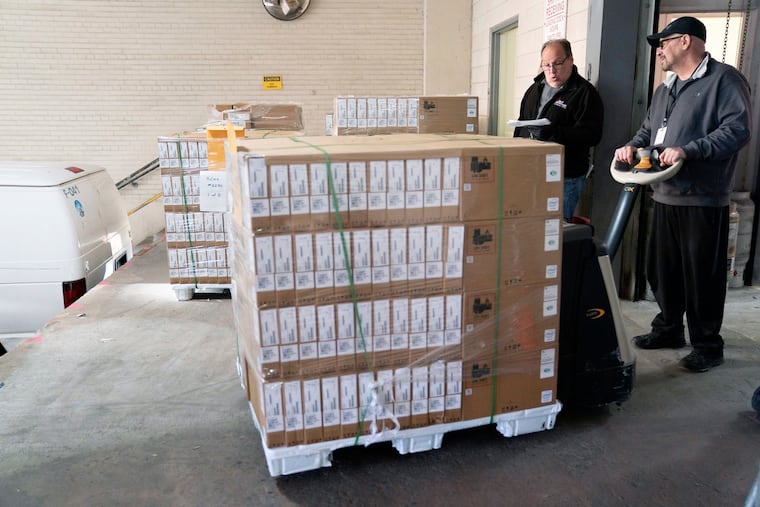Efforts to close the digital divide in Philly are gradually bearing fruit | Opinion
PHLConnectED, created at the height of the pandemic, provides free internet service to households with children from preschool to 12th grade. And starting in 2022, permanent broadband subsidies begin.

The COVID-19 pandemic reinforced the importance of getting everyone connected to the internet. In Philadelphia, that led to unprecedented coordination among a wide range of stakeholders to make it easier than ever for Philadelphians, no matter how much they make or where they live, to get online.
This effort to bridge the digital divide brought together the city, the School District, philanthropies, and the private sector, including Comcast, to create PHLConnectED, which provides free internet service to households with children from preschool to 12th grade. PHLConnectED benefited from all that Comcast had learned through its Internet Essentials program, which, over the past 10 years, has worked nationwide to get over 10 million people connected to the internet, most for the first time.
» READ MORE: A year into PHLConnectED, Philly has made 18,000 internet connections
The pandemic also motivated the federal government to take unprecedented action to help low-income households get connected to broadband. Last year saw the creation of the Emergency Broadband Benefit and Emergency Connectivity Fund. The broadband benefit continues through the end of 2021 to provide a $50-a-month subsidy toward Americans’ internet bills, while the connectivity fund is facilitating connections with schools and libraries around the country. Starting in 2022, the new, permanent Affordable Connectivity Program will provide a continuing subsidy of up to $30 a month.
The PHLConnectED effort shows what a targeted, coordinated effort can achieve. A new study conducted by the city, Wilco Electronic Systems, and John Horrigan of the Benton Institute for Broadband & Society shows that 84% of Philadelphia households now have a home broadband connection, a striking jump from 70% of households just two years ago. And more than nine in 10 Philadelphia households with school-age children now have a home connection. Philadelphia’s collaborative approach to ensure that broadband is available and affordable has become a model that has inspired other cities.
But availability and affordability are just two of the barriers to closing the digital divide. A study by the Boston Consulting Group found that just because someone can sign up for internet at little or no cost doesn’t mean that they will. The city’s report on PHLConnectED, as well as a separate Pew Research Center study, confirmed that there are other essential elements that must be addressed.
» READ MORE: Our chances of closing Philadelphia’s digital divide improved with the pandemic | Opinion
Too many people are simply not aware of the programs available to help them get connected, and we need to dedicate more resources toward public awareness. Too many people are simply not comfortable with the internet, and they need user-friendly digital skills training and technical assistance. Too many people are afraid of the internet and what it will mean for family life, and they need to be reassured that the internet will help their children to achieve and get ahead. And too many people cannot afford a desktop or laptop computer, which is important to optimize the use of internet for educational purposes; they need help to obtain affordable devices.
In our efforts through Internet Essentials, we’ve worked to address these additional barriers. A recent study by Horrigan that focused on our program found that Internet Essentials’ strategies significantly improve users’ digital skills and that we need to tailor training to the different needs of different audiences, whether they be students, seniors, veterans, or people with disabilities, for example.
Closing the digital divide requires a holistic approach. Government support programs must be permanent and stable. The public must be made more aware of these programs, and the programs need to be easy to use. We need to get affordable, capable devices into homes. The skills barriers must be tackled in targeted ways for specific audiences. Above all, we need collaboration and partnership among government, the private sector, and philanthropies. It’s working in Philadelphia, and it can work across America, too.
Bret Perkins is senior vice president of external and government affairs for Comcast Corp.